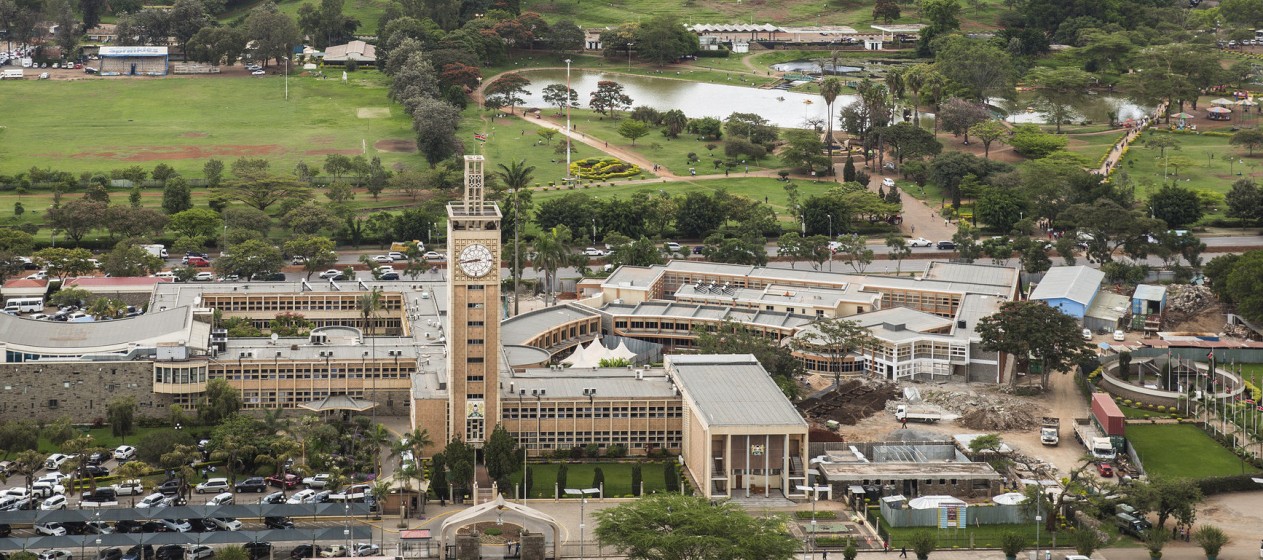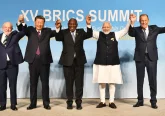National legislatures too frequently pass legislation limiting freedom and democracy. To change this requires not just training, but also an appeal to the personal incentives of individual MPs.
The last few years have not been good to democracy. According to the US think tank Freedom House, 2014 saw a “disturbing decline in global freedom”, with twice as many countries suffering democratic declines as enjoying democratic gains. This problem has not been contained in one region, but has proved to be a much broader phenomenon, from campaigns against media freedom in Egypt and Turkey to homophobic legislation in Africa and sustained conflict in Iraq and Syria. Worryingly, this is the ninth year in a row that a drop in the overall level of freedom has been recorded.
Democratic backsliding
Much of the blame for this backsliding has been placed on the shoulders of presidents, who are often depicted as being desperate to retain power at any cost. There is some truth to this, and it is clear that leaders such as Robert Mugabe and Bashar al-Assad have pushed authoritarian excesses. But what often escapes notice is that some of the most repressive policies introduced in recent times were debated and passed by elected parliaments. This raises serious questions for those in the democracy promotion community about why legislatures trained in democracy and human rights issues have failed to act as bulwarks to authoritarian abuse – and what can be done about it. Some of the most repressive policies introduced in recent times were debated and passed by elected parliaments.
Some of the most repressive policies introduced in recent times were debated and passed by elected parliaments.
To start with, consider the Uganda Anti-homosexuality Act (2014), which made headlines around the world throughout 2013. Despite strong pressure for Uganda to respect gay rights from western policy makers, including the UK foreign secretary, William Hague, the bill passed by parliament on 20 December 2013 stipulated life in prison for those found guilty of homosexual acts. In this case, it was thus not the National Assembly that vetoed the legislation, but the Constitutional Court, which struck the act down on procedural grounds under pressure from the executive.
The Ugandan parliament actually played a pro-active role in the passage of the act, which was originally introduced as a private member’s bill in 2009. Indeed, it was parliament that voted to reopen the debate after the cabinet concludedthat the current laws on homosexuality were sufficient in 2011. When the bill was finally re-introduced in 2012, the speaker declared that she would see that the bill passed before the end of the year as a “Christmas gift” to his supporters.
Parliaments do not always take a leading role in the introduction of repressive legislation, but at times they fail in their duty to protect constitutional and democratic norms. This was the case in Kenya, where the national assembly passed a law that significantly undermined media freedom. The ‘media council bill’ and associated legislation empowered a quasi-governmental body to impose large fines of up to $230,000 on media groups and up to $10,000 on individual journalists found guilty of transgressing a rather vague set of guidelines. Although these figures are smaller than those initially proposed – they were revised downward after the president asked MPs to take a second look at the legislation – it still represented a “draconian” move according to the Committee to Protect Journalists.
The Kenyan case is particularly disappointing given that the legislature, significantly strengthened by the introduction of a new constitution in 2010, has the reputation for being one of Africa’s most robust bodies. For a short while it looked as though the creation of a new second chamber, the senate, might derail the bill after a number of prominent senators pledged to veto the legislation. However, this ultimately proved to be an empty threat, demonstrating the potential vulnerability of constitutional reform to democratic backsliding.
Explaining legislative limitations
In the case of Uganda, legislators supported an infringement on human rights because it was popular: 96% of Ugandans disapprove of homosexuality and this includes a number of influential religious lobby groups. By passing the legislation MPs were therefore pandering to the electorate. In a political system in which candidates are largely responsible for funding and organising their own re-election campaigns, it is dangerous for parliamentarians to stand against the tide of public opinion. For this reason, more critical MPs asked for the debate on the bill to be held behind closed doors, as well as the vote.
In the case of Kenya, the bill was actually broadly unpopular. Public opinion is strongly in favour of a free media, with 73% of people backing the media’s watchdog function. At the same time, civil society groups, the domestic and international media, and international donors were quick to criticise the legislation and to point out that it contravenes the spirit of the 2010 constitution. Given this, how can we explain the fact that government MPs and a number of opposition MPs backed the proposals?
The answer is two-fold. First, government leaders deployed party whips effectively to enforce the discipline of their own MPs. Second, a number of opposition MPs – who might have been expected to oppose legislation that empowers government censorship – backed the bill, against the stated position of their party leaders. This happened either because they had personally suffered from media exposés, and so had little sympathy for journalists, or because they were offered inducements to cross the floor of the house. In this way, the legislative advantages of ruling parties, which enjoy far more sticks and carrots to enforce discipline than opposition parties, helps to explain the failure of the Kenyan parliament to defend democracy.
Protecting democracy
So what can be done to increase the likelihood that legislatures will protect democracy? The key is to find areas in which MPs have built-in incentives to reject repressive legislation, and to emphasise these where possible. Two recent examples illustrate strategies along this vein that may be able to be deployed in other cases.
In a number of countries, legislators have played a critical role in defending key democratic institutions such as presidential term limits. A closer look at the failure of presidents to secure a third term through constitutional change in places such as Burundi, Nigeria, and Zambia reveals that one of the main barriers they faced was parliamentary opposition, including from within their own coalitions. On the one hand, more liberal-minded MPs responded positively to the appeals of civil society groups and donors to protect democratic norms and the rule of law. On the other, a number of legislators refused to back the executive either because they had presidential ambitions themselves, or because they were aligned to other presidential hopefuls.
In other words, presidential term limits were defended by a broad alliance of MPs motivated by a range of principled and self-interested concerns. This suggests that international intervention to support democracy should seek to marry projects that build legislative capacity with opportunistic engagement around key issues. The potential for what Joel Barkan once called “reform coalitions” to protect democratic gains is well illustrated by another piece of legislation recently introduced in Kenya: the ‘statute law (miscellaneous amendments) bill’, 2013.
The most notorious clause in the bill proposed to cap the amount of money that NGOs could receive from foreign sources.
Despite its innocuous title, the Statute Law represented an attempt by the government of President Uhuru Kenyatta to clamp down on the activities of civil society groups that had supported his prosecution at the International Criminal Court for crimes against humanity. The most notorious clause in the bill proposed to cap the amount of money that NGOs could receive from foreign sources at 15% of their total budget. This would have pulled the rug out from under the feet of many human rights and pro-democracy groups, which are heavily reliant on western funding.
Initial readings of the amendment suggested that, as with the media legislation, the national assembly might be willing to follow the government’s lead. However, a concerted campaign by donors and civil society organisations changed the minds of a number of parliamentarians and it was subsequently rejected. In some cases, MPs changed their mind because they were persuaded of the importance of a dynamic civil society – which had played a critical role in pushing for the celebrated constitutional reform of 2010. In many other cases, however, MPs changed their minds because they were made to realise that cutting the funding to NGOs that were active in their own constituencies would have a dramatic effect on service delivery and employment, undermining their prospect of re-election.
The implication of these examples is clear. Efforts to strengthen the institutional capacity of legislatures, and to train legislators in democratic arts, should be sustained – but they are unlikely to be successful unless they are combined with a careful examination of where MPs do, and don’t, face personal incentives to defend democracy.
This article was originally published at openDemocracy.






